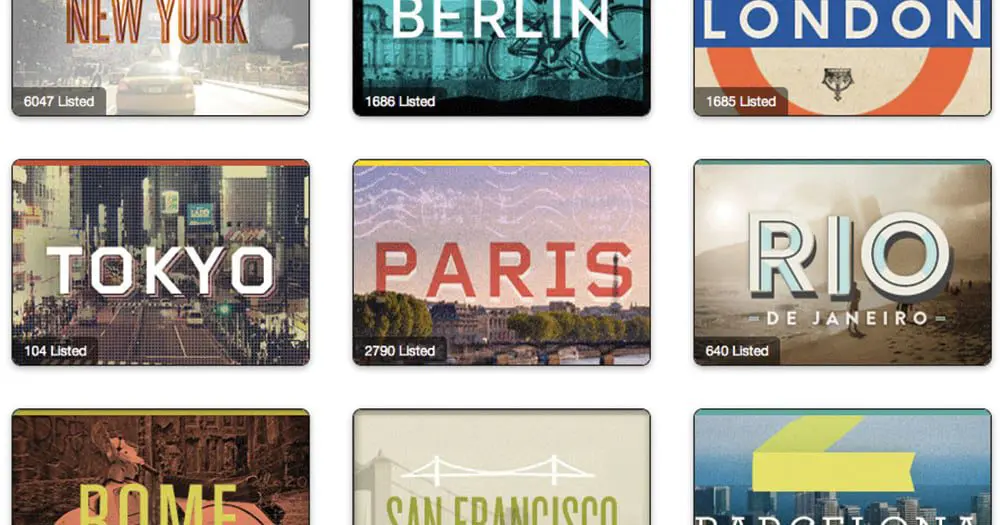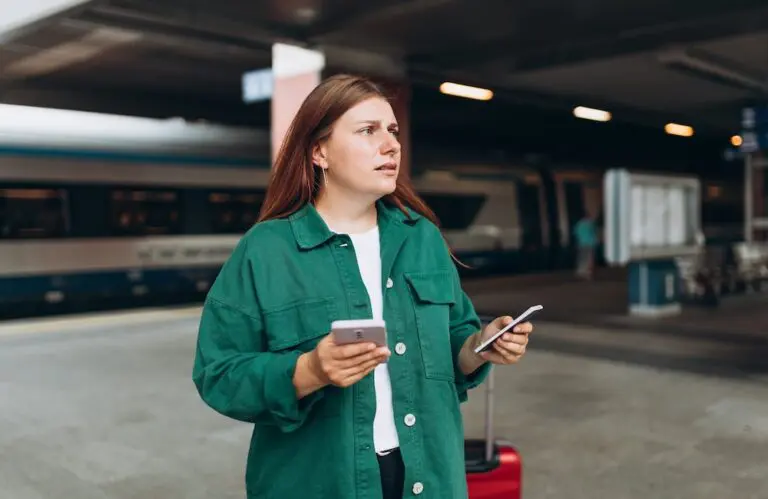If you’ve been following the journey of the ‘great disruptor’ that is Airbnb and their rapid rise to world domination you may be thinking that they now have the hotel game on the ropes.
And you could be right. Because in just a mere six years of trading Airbnb has managed to amass 60 million users, 640,000 hosts and 2 million listings in 57,000 cities and 191 countries.
In Sydney for example, the number of listings has surged to around 15,000 over the past year, from about 8000 a year ago, making it one of Airbnb’s top 10 global cities in terms of listings.

As of 30 June 2016 Airbnb hosts had welcomed 80 million guests worldwide, a result of which according to Airbnb themselves, the company is on track to double again in 2016.
It’s the kind of numbers that the biggest of hotel empires could only ever dream of.
In another affront against the hotel game and legacy revenue streams, Airbnb announced recently that three of the world’s major Corporate Travel Companies will soon be able to book Airbnb properties for their business customers through their portal.

Just why Airbnb has been such a phenomenal success is mostly put down to accessibility through their superior digital experience, cosy homespun places for everyone regardless of your travel needs and getting to experience ‘living like a local’ in hip neighbourhoods.
Aided of course by the hosts themselves who in place of often stuffy hotel concierges can usually pretty much hook you up with anything your travelling heart desires ‘in the hood’.
It’s a compelling offer and one that’s turned ordinary property owners and (ahem) some naughty renters too into essentially small scale hoteliers and bed and breakfast hosts ready to cash in on the sharing economy and create their own revenue streams from beds that don’t get slept in on a regular basis.
But it’s come with plenty of nightmares too.
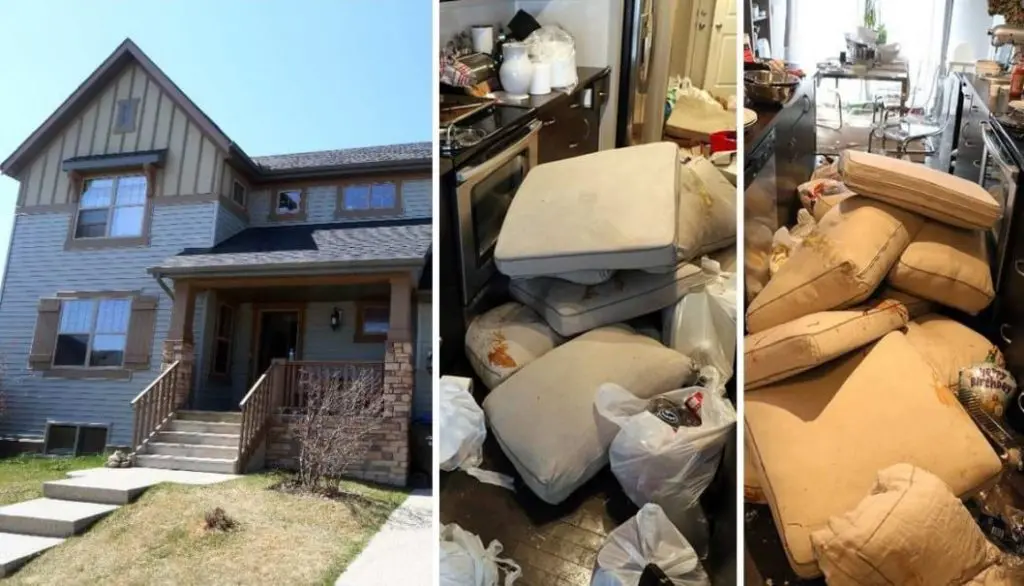
Just a quiet few drinks went down at this Airbnb in Canada
There’s been publically vented outrage from the hotel industry, locals and body corporate’s in apartment buildings around regulation, public liability and tax issues and there’s been scandal a plenty with properties used as brothels and party zones with horror stories of squatters refusing to leave and bathrooms fitted with hidden cameras to name but a few.
But whilst not everyone loves the sharing economy, Airbnb’s popularity grows week on week.
In the last three years or so I’ve stayed in about twenty different Airbnb properties both on my own and with my family for work and leisure in various countries. I’ve also stayed in numerous hotels of varying star ratings for the same reasons on work trips and holidays.
And I have to say, that for all its apparent charms and difference as detailed above, looking right now at both options Airbnb for me is starting to lose some of its gloss versus hotels. Here’s why.
1. It’s not cheap anymore

Does this look like value to you?
The word value will usually be a key driver for most people when it comes to parting with cash on anything that isn’t considered a commodity. Like where to sleep.
When Airbnb first started out it was a low value-based model with the simple idea of ‘Homeowners making some extra revenue from their properties’.
Today it’s become a business in its own right with property agents jumping on the bandwagon for holiday lets, property developers preferring the platform over traditional models and anyone and everyone believing (and realising) that they can fund their mortgages, weekend party funds, Uni fees and then some via Airbnb.
Call it supply and demand, call it greed, call it whatever – but comparing both for equivalent rooms over the last six months for stays in Sydney I’ve found I can often stay in boutique 4 or 5 star hotels for the same or less than someone’s home on Airbnb.
And I know which option I’d rather choose, because…
2. I know what I’m getting at a hotel
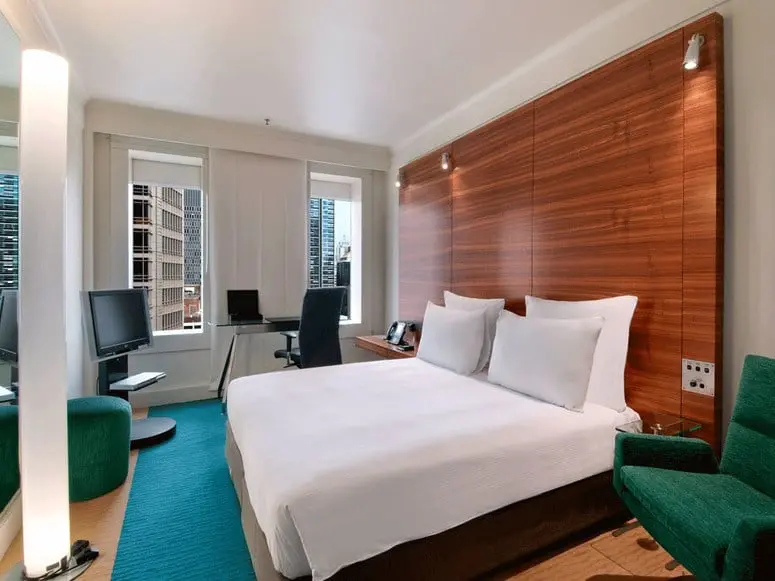
The Hilton chain for example prides itself on consistency
Remarkably and perhaps ironically, Airbnb’s rise to success has been built on one key driver. Trust.
Much like as with it’s other famous fellow disruptor Uber – we’ve all jumped into bed with these platforms on the first date backing up the new maxim that Airbnb guests are seen as risk-taking extroverts whereas hotel guests are apparently conservative introverts. But is it the right thing to do?
Hotels generally pride themselves on consistency of experience wherever you stay. It’s the reason brands exist and let’s face it – for the most part we don’t really like (bad) surprises anyway when it comes to sleep so it’s a strategy that’s worked well to date – hence the conservative introverts that stay in hotels.
So whilst Airbnb also has reviews (sort of) like Trip Advisor with its own rating system, it’s still a risk taking a punt. Which when you’re low on time and energy could be a trip changing moment for the worst if it doesn’t work out. It’ll always be much easier to complain to a hotel.
3. Booking is easier for hotels
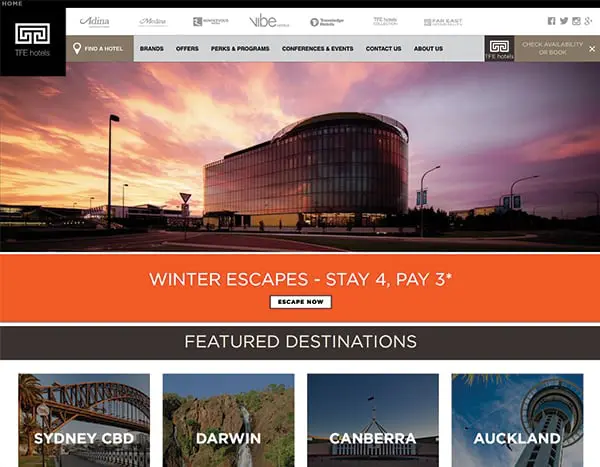
TFE Hotels
Airbnb isn’t a booking engine. The actual process is clunky and though there are some properties you can book straight away, for the most part you are waiting on the host to confirm.
At Christmas time I spent a long time contacting numerous holiday properties in Byron Bay, many of which were as it turned out – run by property agents anyway. They were also all full, which after a good couple of hours or so liaising with them all was a big waste of time. Ugh.
New skool vs old skool? Booking a hotel is dare I say it, is much quicker.
4. There’s still some kind of loyalty with hotels
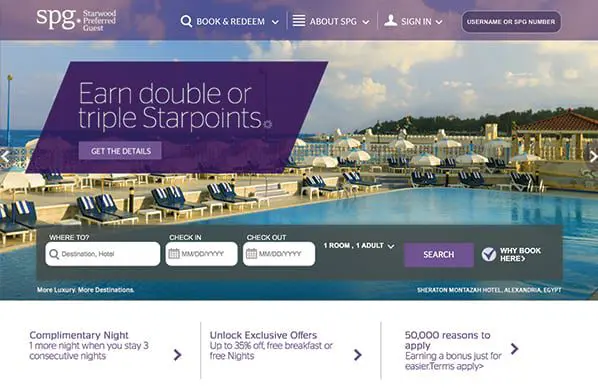
Starwood offer free wifi, lowest rates and bonus nights
Unless you befriend your Airbnb host because you’ll be staying there on a regular basis (in which case you’ll probably do a deal with them directly anyway) there’s nothing in the way of loyalty when it comes to repeat visits on the platform. It’s just not that kind of thing.
Hotels come with their own loyalty programs, which whilst I agree are not always the most benefical unless you are a corporate customer racking up a lot of nights, they still do add some value from time to time.
And given the changing landscape and the rise of Airbnb, hotels are now more compelled than ever to lure you back with even the offer of free wifi or some other deal clincher.
5. Safety is relatively unassured on Airbnb
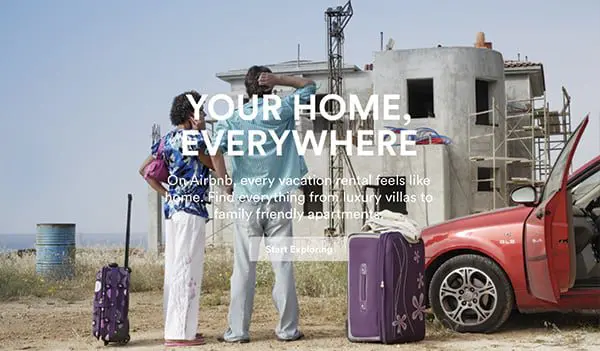
Image credit: Medium.com
See point 2. Depending on where in there world you may be staying will of course add more weight to this point but it really is quite simple.
With Airbnb you are staying in an unknown’s property that is unregulated, unchecked and potentially unsafe for a number of reasons you have no idea about. From a gas boiler on the brink to an unfenced pool, rickety balcony or dodgy room mate. You have no intel on the state of the property or the potential dangers lurking within.
This can be exciting for some staying in places like this and we’ve no doubt all been there from time to time. I have numerous times backpacking around the world and staying in places I don’t want to revisit in my mind thinking about what could have happened.
But these days i’d rather gamble on more assured things like the office footy tipping comp or throwing $50 at the Melbourne Cup. Especially with my family in tow.
There’s a reason Hotel trade safety standards exist and you can understand why the hotel industry is up in arms about Airbnb hosts blurring the law lines.
6. Amenities are a good thing
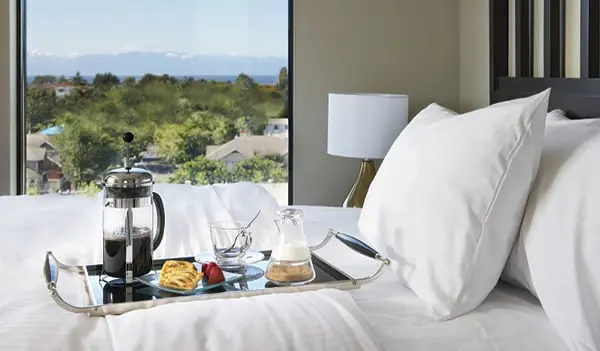
Is Room Service a luxury or a given?
Going back to point 1 – Airbnb for the most part isn’t cheap anymore.
So bundle in breakfast, room service, pools, gyms and even in-room toiletries and hotels are already winning. Yes it’s a totally different experience of course and some hosts do offer different options and some of the above, but I personally value service and quality and will take that over an unknown for the same price or even 25% more every day.
My mum always said when I was younger – “You treat this place like a hotel”. These days I absolutely do if i’m paying for it. That’s why we love hotels isn’t it? I don’t feel as good about doing that in an Airbnb.
If you’re travelling for leisure or business, amenities are a great thing and much as i’ve mentioned, I think the rise of Airbnb has forced hotels to life their game massively and innovate once more to integrate more services that people actually want and are happy to pay for.
Checking out
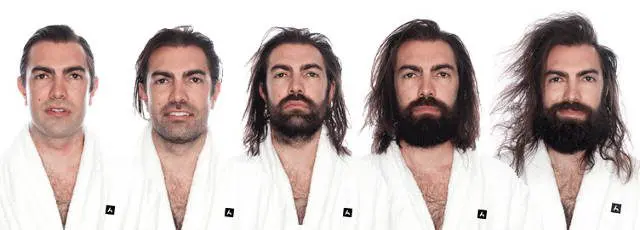
Art Series Hotels late checkout campaign was genius
Having experienced both Airbnb and hotels extensively, my feeling is that Airbnb’s arrival has been wonderful for travel in general. It’s enabled more people to travel and presented a diverse, new range of options to travellers everywhere looking for unique accommodation experiences and locations.
It’s also forced up the whole sector, pressuring hoteliers everywhere to innovate and go back to their customers to ask them what they actually desire from their stays.
More initiatives like the one above from Art Series Hotels and their ‘Overstay your welcome’ campaign for late checkouts will only help enhance the more daring hotel chains profiles. Who will be the ones who win.
So whilst my piece and experience is relatively pro hotels right now, it’s a feeling and opinion that has changed in the last few months as both Airbnb and the hotel industry have evolved in different directions.
And i’ll continue to watch on and literally sleep on it in the coming months.



